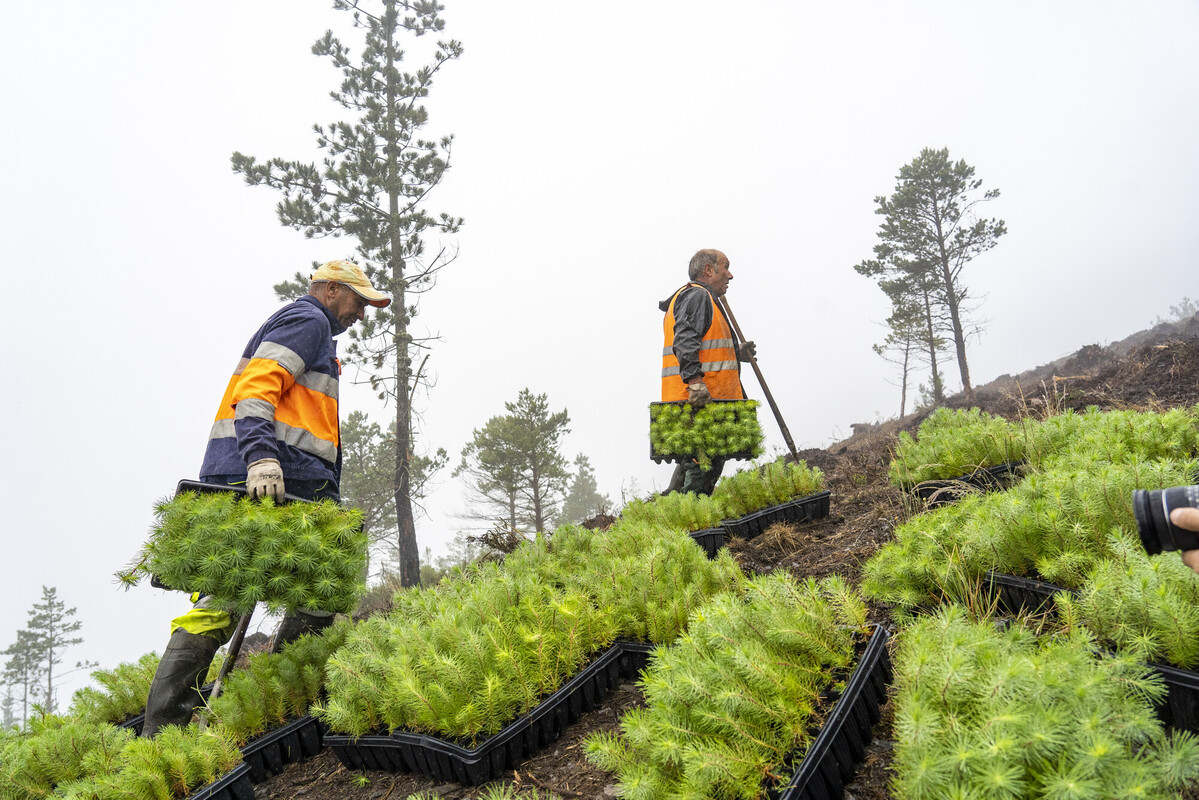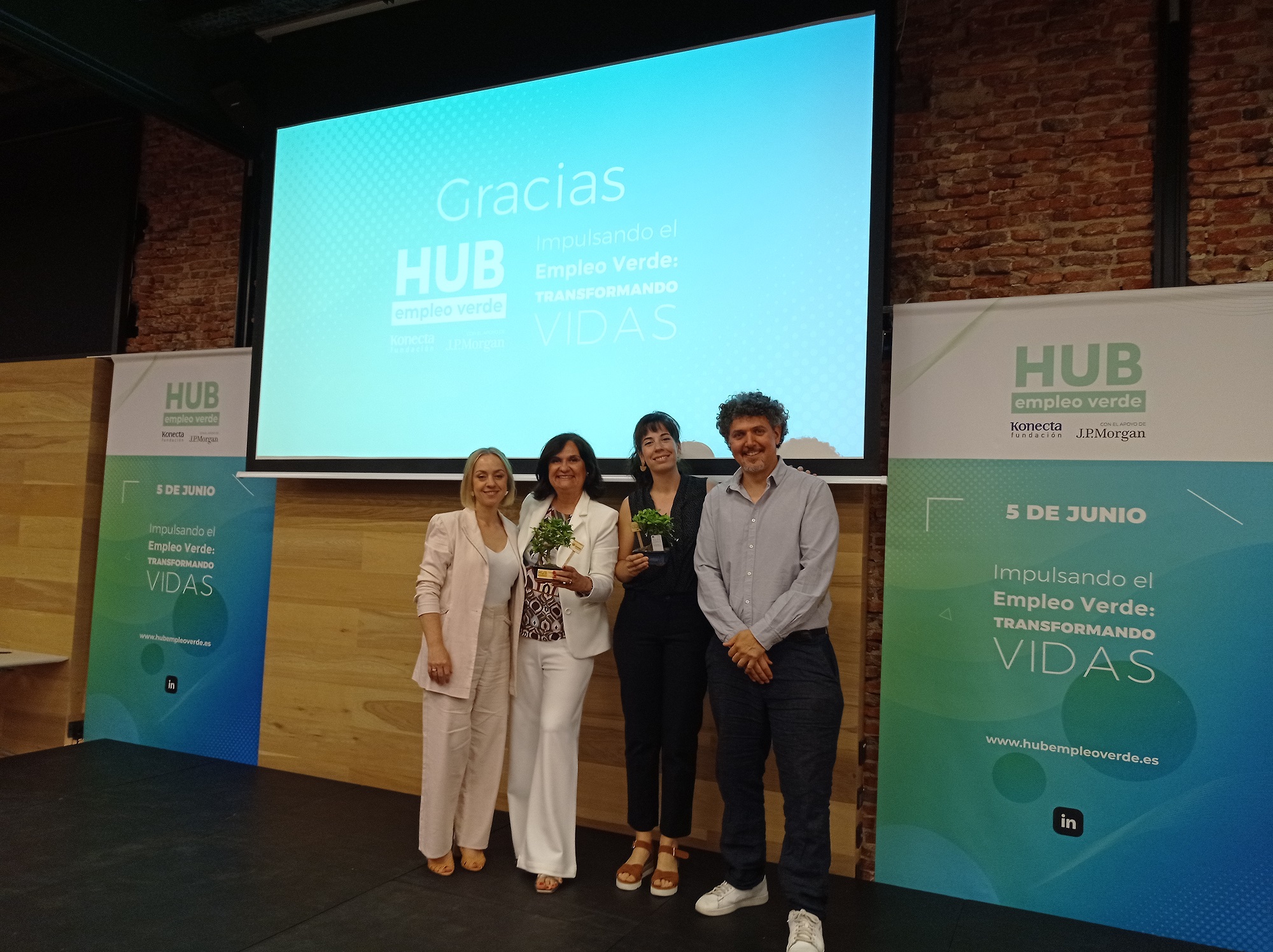
The Repsol Foundation and Funseam are committed to circularity as the main focus of a competitive industrial transformation

- The V Circular Economy Cycle: “The industrial sector towards circularity” organized by the Repsol Foundation and Funseam, was held today in Cartagena, which analyzed, with the help of experts in economic and energy matters, the current trends and the different future scenarios of the energy transition.
- For Repsol chairman, Antonio Brufau, competitiveness in Europe is closely linked to its industrial competitiveness and the need to have a solid industrial strategy. In this sense, he stated that "Europe needs an Industrial Pact to complement the Green Deal, which ensures competitiveness and that doesn't allow Europe or Spain to be left off the world stage." Furthermore, Brufau highlighted some recommendations from the recently published Draghi Report, which is aligned with Repsol's vision and public position.
- The Funseam and Enagás chairman, Antonio Llardén, pointed out that “the Region of Murcia is a crucial enclave for safe energy supply in Spain and Europe, and is also strategic for promoting decarbonization and the circular economy, an area in which the region is pioneering."
- The mayor of Cartagena, Noelia Arroyo, who attended the event, pointed out “the efforts towards sustainability that companies like Repsol are making in Escombreras through their technological transformation, which ensure the industrial future of Cartagena. From here, we will continue to create an important part of the energy that will keep Spain moving in the coming decades, and we'll do it with renewable fuels, generating quality employment and attracting new investments."
- The president of the Region of Murcia, Fernando López Miras, highlighted that “the Region of Murcia is an industrial power in Spain and one with the greatest productivity and stability in employment. The sector plays a very important role in the energy transition and the global transformation towards a circular economy, and the Region of Murcia also has a lot to say in this matter.”
The Repsol Foundation and Funseam organized the V Circular Economy Cycle: “The industrial sector towards circularity” where the role of the circular economy in the energy transition was analyzed, at a time when the bases of the new industrial policy that Spain and Europe must develop to continue moving towards a production model that reduces emissions and boosts competitiveness is being defined.
The meeting was attended by Antonio Brufau, Repsol chairman, Antonio Llardén, Funseam and Enagás chairman; Noelia Arroyo, mayor of Cartagena, and Fernando López Miras, president of the Region of Murcia, as well as other personalities and entrepreneurs from the Region of Murcia.
The Repsol chairman highlighted some of the most relevant issues of the recent Draghi Report on the Competitiveness Strategy for Europe, “which endorses many of the aspects we've long been expressing from the industry and Repsol,” Brufau stressed.
For Antonio Brufau: “The report states in black and white what we've been asking for a long time both from the industry and from Repsol: to take into account all the elements of the energy trilemma, i.e, advancing in decarbonization without forgetting supply safety and competitiveness. To do so, it is necessary to adopt a comprehensive approach that includes fiscal, innovation, and governance policies that guarantee real technological neutrality and include all possible alternatives without exception, from renewable energies to hydrogen, including carbon capture and storage technologies or renewable fuels, such as those produced at the new Repsol plant in Cartagena. Having all the current solutions, and those that will be developed in the future, will allow us to achieve emissions reduction objectives more quickly and enhance our competitiveness as an industry.”
The Funseam and Enagás chairman, Antonio Llardén, pointed out that “the Region of Murcia is a crucial enclave for safe energy supply in Spain and Europe, and is also strategic for promoting decarbonization and the circular economy, an area in which the region is pioneering." Llardén also highlighted the leading role of industry in this area and recalled that "we must continue to make progress" to turn Europe's leadership in the circular economy "into a competitive advantage for industry."
The mayor of Cartagena pointed out “the efforts towards sustainability that companies like Repsol are making in Escombreras through their technological transformation, which ensure the industrial future of Cartagena. From here, we will continue to create an important part of the energy that will keep Spain moving in the coming decades, and we'll do it with renewable fuels, generating quality employment and attracting new investments." The City Council has assumed an active role to collaborate in this transformation with fiscal and urban measures and a pioneering training initiative, so companies have the professional profiles they need in their modernization programs."
During his speech, the president of the Region of Murcia, Fernando López Miras, highlighted that “the Region of Murcia is an industrial power in Spain and one with the greatest productivity and stability in employment. The sector plays a very important role in the energy transition and the global transformation towards a circular economy, and the Region of Murcia also has a lot to say in this matter. We host large projects here in the industrial network putting us in the front seat on the journey towards the energy transition. In this objective, the projects Repsol is developing in Cartagena will be key.”
The conference also included an analysis of the challenges and opportunities of the circular economy in the Region of Murcia, with several experts and representatives of companies working on projects in this area taking part.
The closing of the event was attended by the executive managing directors of the Repsol Foundation, António Calçada, and of Funseam, Joan Batalla.



